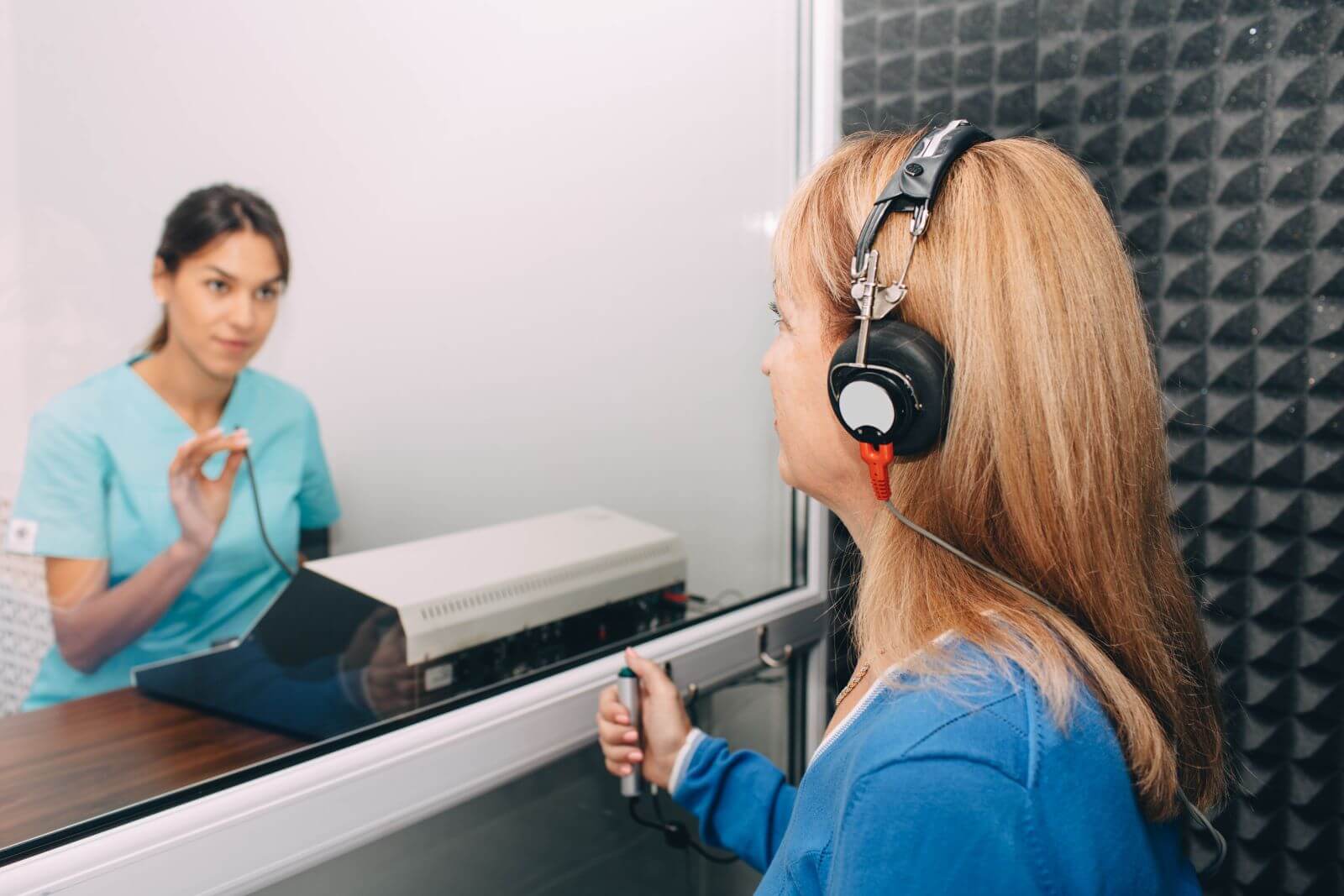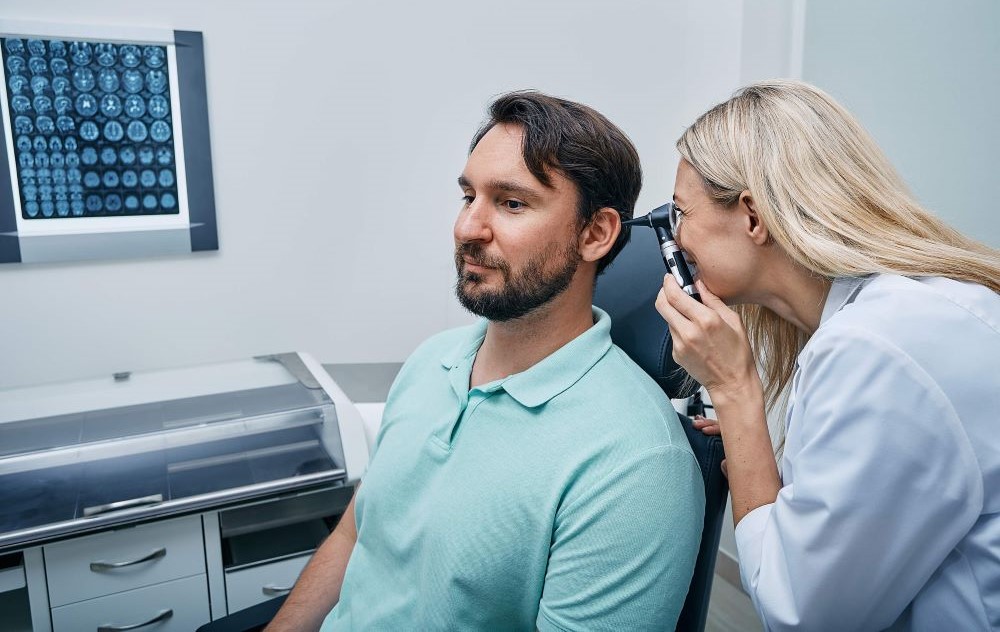Hearing Evaluation and Testing


Comprehensive Hearing Evaluations

Should You Get a Hearing Test?
Have you noticed any changes in your hearing health? If any of the following situations sound familiar, it's time to book a hearing test:
- You struggle to follow conversations, especially when meeting someone new.
- You have a hard time following conversations in noisy settings like restaurants or social gatherings.
- You’ve stopped going to events because of your hearing loss.
- You often ask people to repeat themselves, and even when they repeat themselves, it feels like they’re mumbling or speaking very softly.
- You’ve stopped having phone conversations because it’s just too hard to hear what’s being said.
- You turn up the volume of your TV or radio to a level that makes your family complain about the volume.
- You have an ongoing, persistent ringing in your ears that makes it hard to concentrate or get a good night’s sleep.
- You miss out on the sounds of daily life, like the alarm clock, phone notifications, or the oven timer.
- You find yourself paying attention to non-verbal cues or trying to read lips to understand conversations.

What is a Hearing Test?
A hearing test is a powerful diagnostic tool that can help you understand more about your hearing loss. A comprehensive hearing test can identify the type and severity of your hearing loss, as well as offer insight into the causes of your hearing loss. During your hearing test, our experienced hearing health specialists will test your hearing abilities across a range of pitches and volumes.
Your test results are displayed on an audiogram. This shows you what sounds you can and can’t hear. It shows you frequencies you struggle to hear, as well as the volume threshold at each pitch. If you have difficulty hearing soft sounds across a range of pitches, you have hearing loss. This test also helps us determine the severity of your hearing loss, ranging from mild to profound. After the test, we will look at the results together, and help you decide if hearing aids are right for you.
All About Decibels

Understanding Your Hearing Test Results
If you have healthy hearing, you should be able to hear sounds between 1 and 20 decibels, like the sound of breathing or very soft sounds.
- Mild Hearing Loss: If your hearing loss falls in the 26 to 40-decibel range you have mild hearing loss. You may have a hard time following quiet conversations, and may not hear soft sounds like the rustle of leaves or the ticking of a clock.
- Moderate Hearing Loss: If you struggle to hear sounds in the 41 to 55-decibel range you have moderate hearing loss. You may find it challenging to follow conversations at a normal volume, particularly in noisy settings.
- Moderately Severe Hearing Loss: If you have hearing loss in the 56 to 70-decibel range, you have moderately severe hearing loss. You will struggle to follow conversations, and you may be missing many of the sounds in your environment.
- Severe Hearing Loss: Severe hearing loss is in the 71 and 90 decibel range. If you have severe hearing loss, you may miss a lot of sounds around you, like the doorbell, or the ringing of the phone. You’ll also find it hard to follow conversations, even if others are speaking loudly.
- Profound Hearing Loss: If your hearing loss is above 91 decibels, you have profound hearing loss. You’ll miss many of the sounds around you and may feel very isolated since it’s challenging to follow conversations or connect with others.

Insurance Coverage Options
Insurance coverage varies based on your insurance plan and provider. Some plans may offer coverage for hearing tests and hearing aids, so contact your insurance plan to learn more. We can also check with your health insurance provider to find out what services are covered by your plan.
If you have children or teens, they may be covered. Medicaid covers hearing tests for children and young adults aged 21 or younger. Medicare also offers some coverage for hearing services. You may need a referral from your doctor, so talk to your doctor or give us a call to find out more about your coverage options.
Don't let uncertainty about your insurance stop you from hearing. Pratt Hearing Aids is committed to helping you navigate the process. Give us a call at 419-963-3866, and we'll help you rediscover the joy of hearing. Your world of sound awaits!

Better Hearing Starting at Just $76/Month


